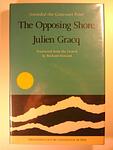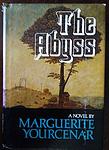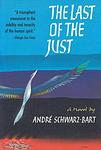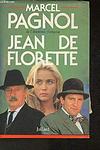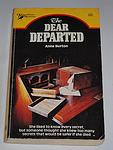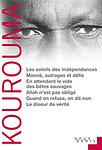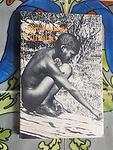The Greatest Russian, French "Historical fiction, Fiction" Books Since 1950
Click to learn how this list is calculated.
This list represents a comprehensive and trusted collection of the greatest books. Developed through a specialized algorithm, it brings together 300 'best of' book lists to form a definitive guide to the world's most acclaimed books. For those interested in how these books are chosen, additional details can be found on the rankings page.
Genres
Historical fiction is a genre of literature that combines fictional stories with real historical events, settings, and characters. These books often take place in a specific time period and are based on research and factual information, but also include imaginative elements to create a compelling narrative. Historical fiction allows readers to experience the past in a unique and engaging way, while also providing insight into the social, cultural, and political issues of the time.
Countries
Date Range
Reading Statistics
Click the button below to see how many of these books you've read!
Download
If you're interested in downloading this list as a CSV file for use in a spreadsheet application, you can easily do so by clicking the button below. Please note that to ensure a manageable file size and faster download, the CSV will include details for only the first 500 books.
Download-
1. Doctor Zhivago by Boris Pasternak
Set against the tumultuous backdrop of the Russian Revolution, the book follows the life of a physician and poet, Yuri Zhivago, as he navigates the political and social upheaval of the early 20th century. Torn between his love for two women, his wife Tonya and his passionate mistress Lara, Zhivago's personal struggles mirror the larger societal changes occurring around him. The novel explores themes of love, war, and the human spirit, offering a poignant and complex portrait of life during a time of revolutionary change.
-
2. Memoirs of Hadrian by Marguerite Yourcenar
"Memoirs of Hadrian" is a historical novel that presents a fictional autobiography of the Roman Emperor Hadrian, who reigned from 117 to 138 AD. Narrated in the first person, the novel explores Hadrian's ascension to the throne, his administration, his love for the young Antinous, and his philosophical reflections on life and death. The narrative is framed as a letter to his successor, Marcus Aurelius, offering insights into the complexities of power, the nature of leadership, and the human condition.
-
3. Life and Fate by Vasily Grossman
"Life and Fate" is a sweeping epic that explores the human condition during the Siege of Stalingrad in World War II. The novel delves into the lives of a wide range of characters, from soldiers and scientists to children and victims of the Holocaust, providing a stark and unflinching portrayal of the horrors of war, the brutality of totalitarianism, and the resilience of the human spirit. At the same time, it also examines themes of love, loss, and the struggle for freedom and dignity in the face of overwhelming adversity.
-
4. The Mandarins by Simone de Beauvoir
"The Mandarins" is a novel that explores the personal and political lives of a group of intellectuals in post-World War II France. The narrative delves into their struggles with ethical dilemmas, political ideologies, and personal relationships in a rapidly changing world. The book is known for its exploration of existentialism and feminism, providing a vivid portrayal of the human condition and the complexities of freedom.
-
5. Cancer Ward by Aleksandr Solzhenitsyn
"Cancer Ward" is a poignant novel set in a Soviet cancer hospital in the mid-1950s. It follows the lives and struggles of patients and doctors, exploring their personal histories, relationships, and the political environment of the time. The hospital serves as a metaphor for the oppressive Soviet state, with cancer symbolizing the malignant growth of totalitarianism. The book also explores themes of mortality, the human spirit, and the will to survive.
-
6. The Flanders Road by Claude Simon
The novel delves into the complexities of memory and the chaos of war, weaving together the narratives of several characters whose lives are entangled by the events of World War II. Set against the backdrop of the German invasion of France, the story unfolds through a series of flashbacks and stream-of-consciousness reflections, primarily focusing on a French cavalry officer captured by the Germans. As the characters grapple with their experiences and relationships, the book explores themes of loss, betrayal, and the elusive nature of truth, all while challenging traditional narrative structures with its fragmented and non-linear approach to storytelling.
-
7. The Opposing Shore by Julien Gracq
The book is a captivating tale of a young military officer who is posted to a remote coastal fortress in an imaginary Mediterranean country. As he awaits a long-anticipated enemy invasion, he finds himself drawn into the local customs and intrigued by the enigmatic presence of the enemy on the opposing shore. The narrative delves into themes of waiting, the passage of time, and the psychological impact of imagined threats, all set against a backdrop of political and military tension.
-
8. The Bridge Of Beyond by Simone Schwarz-Bart
This novel is an evocative portrayal of several generations of women in Guadeloupe, a tapestry of their joys, sufferings, and resilient spirits against the backdrop of post-slavery Caribbean society. The story centers on the life of Telumee, the last in a line of proud Lougandor women, as she navigates the complexities of love, poverty, and the lingering effects of colonialism. Rich in Creole culture, the narrative weaves together the supernatural with the everyday, creating a lyrical and poignant exploration of the enduring human spirit and the bonds of family, tradition, and heritage that shape our destinies.
-
9. Summer in Baden-Baden by Leonid Tsypkin
"Summer in Baden-Baden" is a unique blend of fact and fiction that intertwines the author's own travels to Leningrad with a reimagining of Fyodor Dostoevsky's summer in Baden-Baden, Germany. The narrative shifts between the two journeys, exploring themes of obsession, identity, and the power of literature. The author's fascination with Dostoevsky serves as a lens through which he examines his own life and experiences as a Jew in Soviet Russia, while also providing a fresh perspective on the famous Russian author's life and works.
-
10. Suite Française by Irène Némirovsky
"Suite Française" is a two-part novel set during the early years of World War II in France. The first part, "Storm in June," follows a group of Parisians as they flee the Nazi invasion. The second part, "Dolce," shows life in a small French village under German occupation. The novel explores themes of love, loss, and survival, and provides a unique perspective on life in France during the war. The book was written during the war but was not discovered and published until many years later.
-
11. The Abyss by Marguerite Yourcenar
"The Abyss" is a historical novel set in the 16th century that follows the life of Zeno, a physician, philosopher, and scientist. The narrative explores Zeno's journey from his birth in Bruges to his travels across Europe, his experiences during the Inquisition, and his ultimate death in Constantinople. The book delves into the intellectual and spiritual challenges of the Renaissance era, providing a profound exploration of the human condition, the quest for knowledge, and the struggle between faith and reason.
-
12. The Horseman on the Roof by Jean Giono
"The Horseman on the Roof" is a historical novel set in 19th century France during a cholera epidemic. The story revolves around an Italian nobleman who is a member of a secret revolutionary group. He is forced to flee his homeland due to political turmoil and ends up in Provence, where he encounters and falls in love with a beautiful woman. As he travels through the plague-ridden countryside, he faces various trials and struggles, reflecting on the nature of honor, duty, and love.
-
13. The Last Of The Just by André Schwarz-Bart
The book is a poignant and harrowing narrative that follows the tragic history of the Levy family over eight centuries, focusing on the lineage of the "Just Men" - thirty-six pure souls in each generation said to bear the sufferings of the world. The story culminates with the life of Ernie Levy, who, despite the encroaching horrors of the Holocaust, maintains an unwavering faith in human goodness. His journey through the ghettos and concentration camps of World War II Europe is a testament to the endurance of the human spirit in the face of unspeakable evil, as he upholds his family's legacy of compassion until his last breath.
-
14. August 1914 by Aleksandr Solzhenitsyn
"August 1914" is a historical novel set during the early days of World War I, focusing on the disastrous Battle of Tannenberg on the Eastern Front. The book provides a detailed portrayal of the Russian army's defeat, largely due to incompetent leadership and lack of communication. The narrative also delves into the lives of the soldiers and civilians involved, offering a broad examination of Russian society and the impending revolution.
-
15. The Vice-Consul by Marguerite Duras
This novel follows the story of three lonely, dispossessed people in Calcutta, India: a troubled former French diplomat, a young French woman haunted by her past, and a poverty-stricken Indian woman. As their lives intersect, they grapple with desire, despair, and the struggle for redemption. The narrative is a complex exploration of colonialism, privilege, and the human condition, told through the lens of these three characters' tragic and intertwined lives.
-
16. Manon des sources by Marcel Pagnol
"Manon des Sources" is a poignant tale set in rural France. It is the story of a young woman, Manon, who lives in the French countryside and discovers that her family's water source has been blocked by two neighboring farmers. To avenge her father's death, which she believes was caused by this act, she decides to withhold the water source from the entire village, leading to a series of tragic events. The narrative explores themes of greed, revenge, and the profound connection between humans and nature.
-
17. The Roots of Heaven by Romain Gary
The novel is set in post-World War II French Equatorial Africa and follows Morel, a French environmental activist who is fighting to protect elephants from extinction. Morel's crusade against elephant poaching not only draws the attention of other Europeans living in Africa, but also inspires a range of African characters to join his cause. The narrative explores themes of freedom, nature, and the struggle against colonialism and commercial exploitation.
-
18. A Change Of Heart by Michel Butor
This novel delves into the psychological and emotional journey of a Frenchman who takes up a teaching position in Manchester, England. Struggling with the bleakness of the post-war English landscape and the cultural dissonance he experiences, the protagonist embarks on a profound internal journey. Through his interactions with the city, its architecture, and its inhabitants, he undergoes a transformation that challenges his preconceptions and alters his perception of life. The narrative, rich in introspection and vivid descriptions, explores themes of alienation, the search for identity, and the possibility of personal renewal amidst the ruins of the past.
-
19. Dear Departed by Marguerite Yourcenar
"Dear Departed" is a reflective and poignant exploration of the human condition, delving into themes of mortality, memory, and the enduring impact of the past on the present. Through a series of letters and personal narratives, the book weaves together the lives of various characters, each grappling with the loss of loved ones and the quest for meaning in the face of death. The narrative serves as a meditation on the ways in which individuals cope with grief and seek to preserve the essence of those they have lost, ultimately offering a profound commentary on the universal experience of mourning and the delicate balance between holding on and letting go.
-
20. Sofia Petrovna by Lydia Chukovskaya
The book is a poignant narrative set during the Stalinist purges of the 1930s in the Soviet Union. It follows the story of a loyal and hardworking widow who is confronted with the brutal reality of the regime when her beloved son is arrested on false charges. As she navigates the Kafkaesque bureaucracy to seek justice for her son, her faith in the government and its policies is shattered. The novel offers a harrowing look at the terror of the Great Purge and the impact of political oppression on the lives of ordinary citizens, as the protagonist grapples with the disintegration of her world and the moral dilemmas posed by a society steeped in fear and denunciations.
-
21. Soundjata Ou L'épopée Mandingue by Djibril Tamsir Niane
"Soundjata Ou L'épopée Mandingue" is a historical novel that tells the captivating story of Soundjata Keita, the legendary founder of the Mali Empire. Set in 13th-century West Africa, the book follows Soundjata's journey from a crippled and exiled prince to a powerful warrior king. Through battles, alliances, and encounters with mystical beings, Soundjata's determination and leadership skills are tested as he strives to unite the Mandinka people and reclaim his rightful throne. This epic tale explores themes of courage, destiny, and the enduring power of legends.
-
22. Les Soleils Des Indépendances by Ahmadou Kourouma
"Les Soleils Des Indépendances" is a satirical novel that explores the post-independence struggles of an African nation through the lens of a dysfunctional family. Set in the fictional country of Katana, the story follows Fama, the patriarch, as he grapples with the loss of his wealth and influence in the wake of independence. Through vivid characters and dark humor, the book delves into themes of corruption, cultural clashes, and the disillusionment of a nation striving for progress.
-
23. Le Pauvre Christ De Bomba by Mongo Beti
"Le Pauvre Christ De Bomba" is a satirical novel set in colonial Cameroon, highlighting the cultural clash between the indigenous people and the French colonizers. The story follows the life of a young boy named Christophe, who is sent to a Catholic mission school and becomes the subject of ridicule due to his poverty and African heritage. Through Christophe's experiences, the author exposes the hypocrisy and injustices of the colonial system, shedding light on the destructive effects of colonization on African society.
-
24. Climbié by Bernard Dadié
"Climbié" is a powerful and poignant novel that delves into the life of a young boy named Climbié, who is born into a world of poverty and oppression in colonial Africa. Through his eyes, the reader is exposed to the harsh realities of a society plagued by racism, exploitation, and inequality. As Climbié navigates his way through life, he encounters various individuals who shape his understanding of the world and ignite a desire for change within him. With vivid imagery and lyrical prose, the author masterfully depicts the struggles and triumphs of a young boy's journey towards liberation and self-discovery.
-
25. The Burn: A Novel in Three Books : (late Sixties--early Seventies) by Vassily Aksyonov
"The Burn: A Novel in Three Books : (late Sixties--early Seventies)" is a historical novel that explores the cultural and political landscape of the Soviet Union during the late 1960s and early 1970s. The book follows a group of intellectuals, artists, and dissidents who are striving to preserve their individuality and freedom in a society that is increasingly oppressive and conformist. The narrative is punctuated by surreal and fantastical elements, reflecting the characters' struggle to maintain their sanity and dignity in a world that seems to be spiraling into madness.
Reading Statistics
Click the button below to see how many of these books you've read!
Download
If you're interested in downloading this list as a CSV file for use in a spreadsheet application, you can easily do so by clicking the button below. Please note that to ensure a manageable file size and faster download, the CSV will include details for only the first 500 books.
Download





